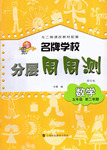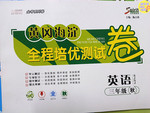题目内容
![]() I once had a teacher whose husband died of heart attack. About a week after his death,she 36 some of her deep understanding with students. 37 the late afternoon sunlight came shinning in and the class was nearly 38 ,she moved a few things aside on the edge of her 39 and sat down there.
I once had a teacher whose husband died of heart attack. About a week after his death,she 36 some of her deep understanding with students. 37 the late afternoon sunlight came shinning in and the class was nearly 38 ,she moved a few things aside on the edge of her 39 and sat down there.
![]() With a gentle look of reflection on her face,she 40 and said,“Class is over. I would like to share with all of you。a thought that isn’t 41 to class,but which I feel is very 42 . ”
With a gentle look of reflection on her face,she 40 and said,“Class is over. I would like to share with all of you。a thought that isn’t 41 to class,but which I feel is very 42 . ”
![]() “Each of us is put here on earth to learn,share,love and give of ourselves. 43 of us knows when this fantastic experience will end. It can be 44 at any moment. Perhaps this is the Power’s way of telling us that we must make the 45 of every single day. ”
“Each of us is put here on earth to learn,share,love and give of ourselves. 43 of us knows when this fantastic experience will end. It can be 44 at any moment. Perhaps this is the Power’s way of telling us that we must make the 45 of every single day. ”
![]() Her eyes were 46 to water. but she went on。“So I would like you all to make me a 47 . From now on,on your way to school,or on your way home,find something beautiful to 48 . It could be the 49 of the breeze(微风)slightly rustling the leaves in the trees,or the way the morning light catches one autumn leaf as it 50 gently to the ground.
Her eyes were 46 to water. but she went on。“So I would like you all to make me a 47 . From now on,on your way to school,or on your way home,find something beautiful to 48 . It could be the 49 of the breeze(微风)slightly rustling the leaves in the trees,or the way the morning light catches one autumn leaf as it 50 gently to the ground.
![]() “Please look for these things, and 51 them. For the 52 things we are put here on earth to enjoy. We must make it important to notice them, for at 53 it can all be taken away.” The class was completely 54 .We all picked up out books and filed out of the room silently. That 55 , I noticed more things on my way home from school than I had that whole semester.
“Please look for these things, and 51 them. For the 52 things we are put here on earth to enjoy. We must make it important to notice them, for at 53 it can all be taken away.” The class was completely 54 .We all picked up out books and filed out of the room silently. That 55 , I noticed more things on my way home from school than I had that whole semester.
![]() Remember, life is not measured by the number of breaths we take, but by the moments that take our breath away.
Remember, life is not measured by the number of breaths we take, but by the moments that take our breath away.
![]()
36. A. learned | B. shared | C. talked | D. discussed |
| B. For | C. As | D. Once |
| B. out | C. off | D. away |
| B. doubted | C. wondered | D. talked |
| B. fair | C. noticed | D. related |
| B. modern | C. important | D. embarrassing |
| B. All | C. Each | D. Neither |
| B. thrown away | C. taken away | D. given away |
| B. worst | C. lowest | D. 1east |
| B. beginning | C. continuing | D. ending |
| B. prediction | C. catalogue | D. rule |
| B. notice | C. spread | D. smell |
| B. noise | C. sound | D. scream |
| B. pours | C. reaches | D. falls |
| B. appreciate | C. hide | D. follow |
| B. great | C. 1ittle | D. formal |
| B. a time | C. no time | D. some time |
| B. worried | C. quiet | D. excited |
| B. night | C. noon | D. afternoon |
36-40 BCABA 41-45DCACA 46-50 BABCD ![]() 51-55 BCACD
51-55 BCACD

 名牌学校分层周周测系列答案
名牌学校分层周周测系列答案 黄冈海淀全程培优测试卷系列答案
黄冈海淀全程培优测试卷系列答案I once had my Chinese MBA students brainstorming on “two-hour business plans”. I separated them into six groups and gave them an example: a restaurant chain. The more original their idea, the better, I said. Finally, five of the six groups presented plans for restaurant chains. The sixth proposed a catering service. Though I admitted the time limit had been difficult, I expressed my disappointment.
My students were middle managers, financial analysts and financiers from state owned enterprises and global companies. They were not without talent or opinions, but they had been shaped by an educational system that rarely stressed or rewarded critical thinking or inventiveness. The scene I just described came in different forms during my two years’ teaching at the school. Papers were often copied from the Web and the Harvard Business Review. Case study debates were written up and just memorized. Students frequently said that copying is a superior business strategy, better than inventing and creating.
In China, every product you can imagine has been made and sold. But so few well developed marketing and management minds have been raised that it will be a long time before most people in the world can name a Chinese brand.
With this problem in mind, partnerships with institutions like Yale and MIT have been established. And then there’s the “thousand talent scheme”: this new government program is intended to improve technological modernization by attracting top foreign trained scientists to the mainland with big money. But there are worries about China’s research environment. It’s hardly known for producing independent thinking and openness, and even big salary offers may not be attractive enough to overcome this.
At last, for China, becoming a major world creator is not just about setting up partnerships with top Western universities. Nor is it about gathering a group of well-educated people and telling them to think creatively. It’s about establishing a rich learning environment for young minds. It’s not that simple.
【小题1】 Why does the author feel disappointed at his students?
| A.Because there is one group presenting a catering service. |
| B.Because the six groups made projects for restaurant chains. |
| C.Because all the students copied a case for the difficult topic. |
| D.Because the students’ ideas were lacking in creativeness. |
| A.China can make and sell any product all over the world |
| B.high pay may not solve the problem of China’s research environment |
| C.cooperation with institutions has been set up to make a Chinese brand |
| D.the new government program are aimed at encouraging imagination |
| A.Look for a New Way of Learning. | B.Reward Creative Thinking. |
| C.How to Become a Creator. | D.Establish a technical Environment. |